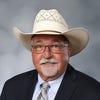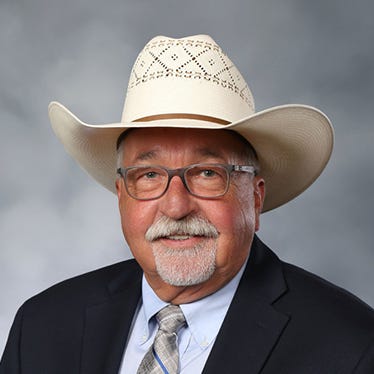February 19, 2019

There are a lot of really smart people involved in the industry of agriculture. This fact is evidenced by all the newfangled products that are being invented and marketed with such speed that I can hardly keep up with everything that is available for us to purchase.
Several of us “old farmers” were gathered the other day and the topic of new technology came up. We were rightfully impressed with all the new stuff, including automatic-steering tractors, precision planting equipment, drones, and even handy and time-saving apps for farmers on their smartphones. Then I spoke up and asked, “With all the smart people inventing new stuff for us all the time, why hasn’t someone invented an easier way to open up the ice on my ponds? (It was about zero degrees that morning, and I was dreading that chore that I knew was awaiting me as soon as I left the coffee shop.)
“You know,” began one of the older men, “the smarter people tell us that we shouldn’t even have ponds. Instead, we should have automatic waterers for the cattle to drink from that are either heated or insulated to the point that the water would never freeze.”
“What do you do when the power goes out for two weeks, like it did a few years ago?” I asked.
Everyone nodded in agreement that this would have been a problem.
Another of the regulars, who doesn’t farm, entered the conversation by reminding us that pond windmills had been invented to save the backbreaking job of chopping ice. We quickly reminded him that the coldest nights were usually very still and without enough wind to operate. He admitted we were right.
Yet another gentleman stated, “I’ve heard that you can put a jug of Tannerite on the edge of the ice, shoot it with a rifle, and the explosion will break the ice enough for the cattle to drink.”
“Already tried it,” I chimed in. “You’ve got to have some weight on top of the Tannerite for it to work, though. A sandbag will work, but by the time you go to all that trouble, you could have already chopped the hole with an ax.”
“Plus,” another man added, “it would take Jerry at least two clips of ammo to hit the target, and ammunition is pretty expensive these days.”
As the meeting of great minds came to an end and we all bundled up to begin the morning tasks, one of the oldest fellows, who runs the most cattle of any of us, made his only comment of the morning. “Have you guys ever considered that, maybe, the smartest people have put away their axes, sold all their cows, rented out their farm and let someone else worry about chopping ice?”
“Wait,” one of the group responded. “I thought we were the smartest people.”
Crownover writes from Missouri.
About the Author(s)
You May Also Like






